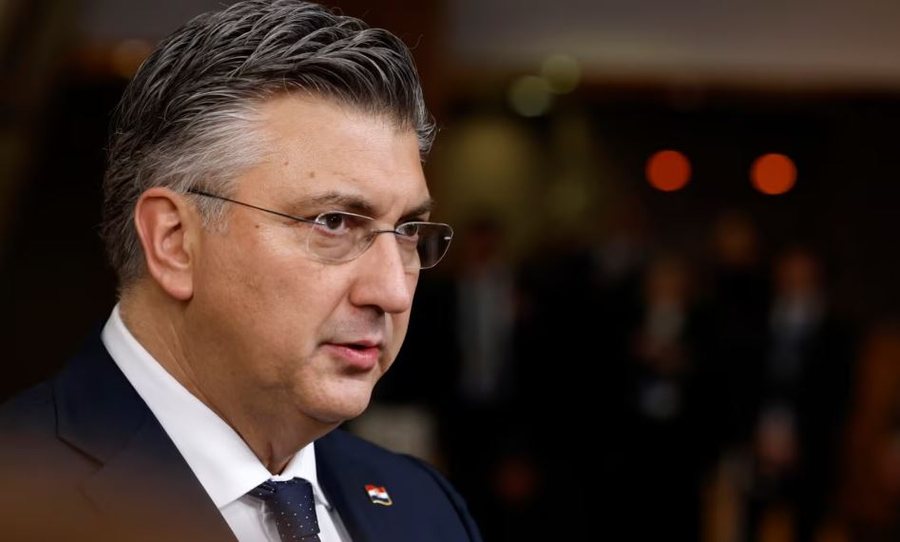
Croatian Prime Minister Andrej Plenkovic has condemned the expulsion of Croatian citizens from Serbia and demanded clarification from the authorities in Belgrade.
"The expulsion of Croatian citizens from Serbia is an unacceptable practice that must be condemned, with the insinuation that our citizens were interfering in Serbia's internal affairs, which is not true," Plenkovic said during a Croatian government meeting on April 10.
He said that Croatia is seeking "clarification from the authorities in Serbia" and added that the Ministry of Foreign Affairs has sent Belgrade a note of protest on the issue.
Plenkovic said that Croatia's partners in the European Union have been informed about this situation.
Croatian citizen Arien Stojanović-Ivković, who graduated from the Faculty of Medicine in Belgrade, worked, married and raised a family in Serbia, was denied residency by Serbian authorities after 12 years of living in Belgrade. She was deported from Serbia and banned from entering the country for a year.
On April 8, the police handed him the decision to revoke his previously approved residence permit in Serbia and the ban on entry into the country.
The reasons for this decision were not made public, but Stojanovic-Ivkovic said it could be due to her support for students, who have been protesting in Serbia for months.
The Croatian Ambassador to Serbia, Hidajet Biščević, told the media in Serbia that in the last three days he has received information regarding the expulsion of three Croatian citizens from Serbia, including the head of the Croatian Chamber of Commerce.
The latest deportations are part of a series of expulsions of Croatian citizens from Serbia. Under the pretext of posing a security threat, in January 2025, participants in a workshop organized by the Erste Foundation in Belgrade were deported from Serbia.
Furthermore, the Serbian state leadership has accused Croatia of trying to overthrow the government in Serbia through secret services and student protests.
Meanwhile, Serbian President Aleksandar Vučić, at the end of December 2024, spoke about the influence of the Croatian intelligence agency on the non-governmental sector in Serbia, saying that all of this is directly or indirectly supported by Western intelligence agencies, both from Europe and the United States.
Vučić has not provided any evidence for these claims.
In Serbia, protests and faculty blockades have been taking place for months, as students are demanding responsibility for the deaths of 16 people from the collapse of a concrete shelter at the Novi Sad Railway Station./ REL (A2 Televizion)











